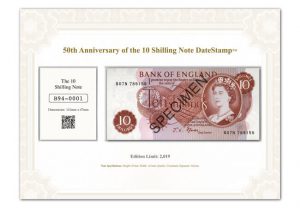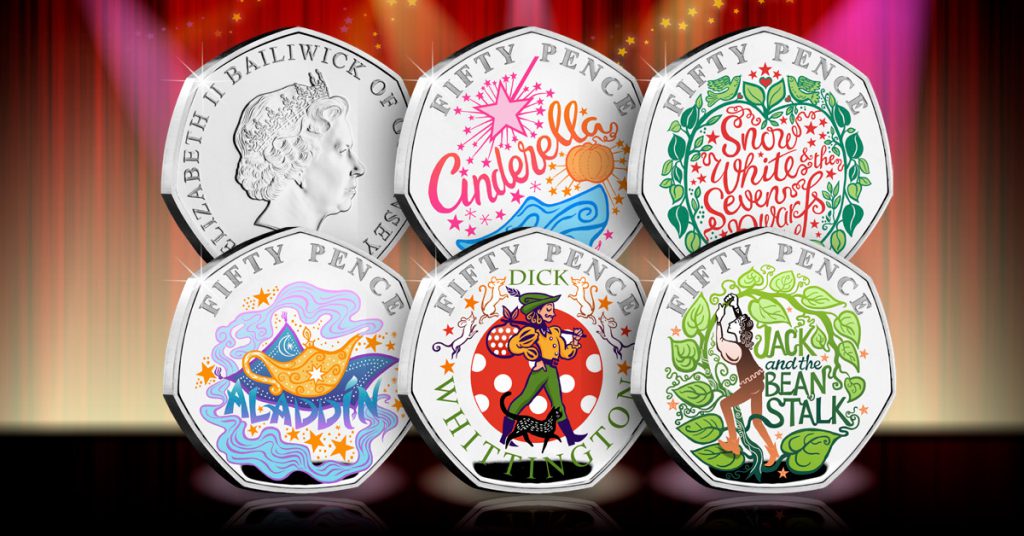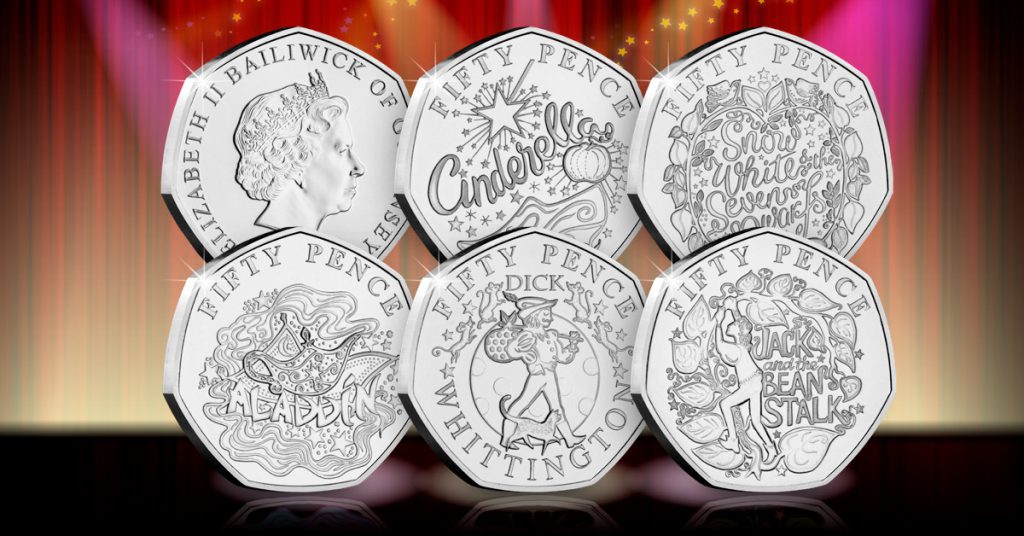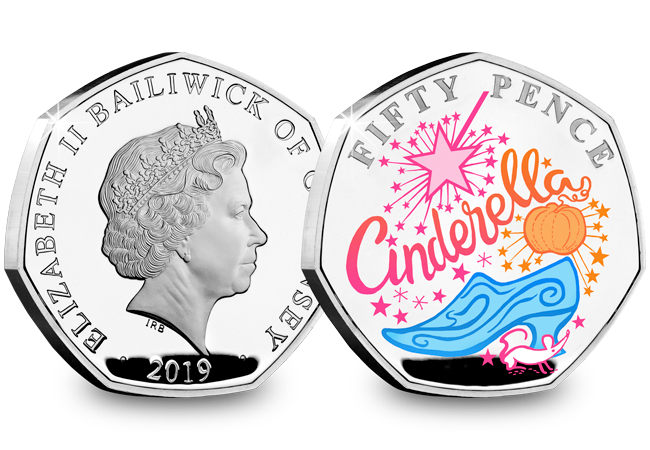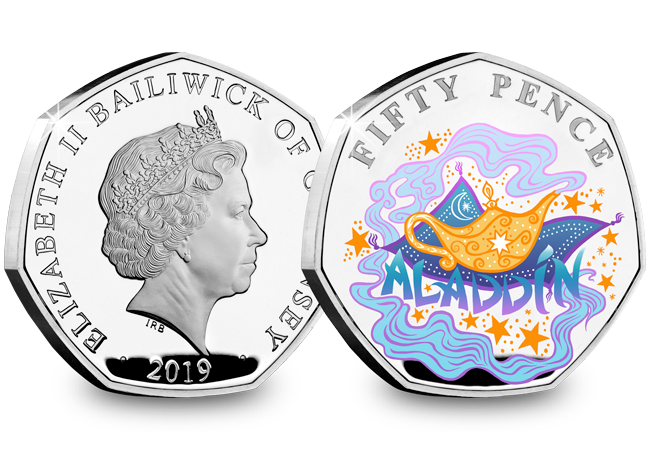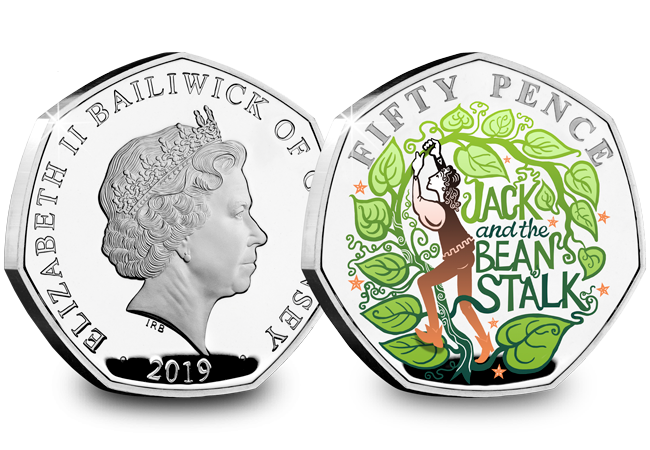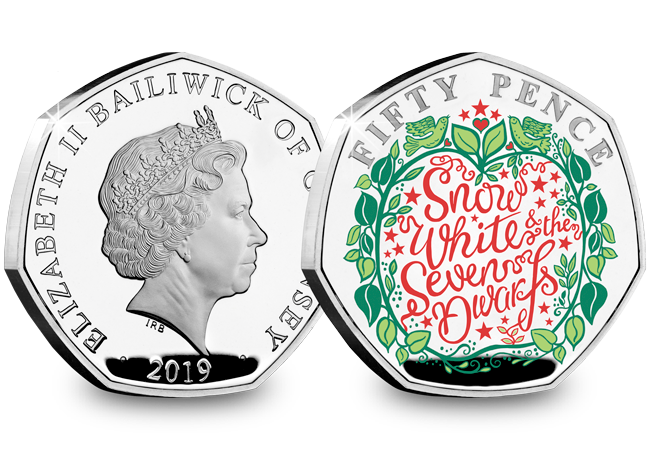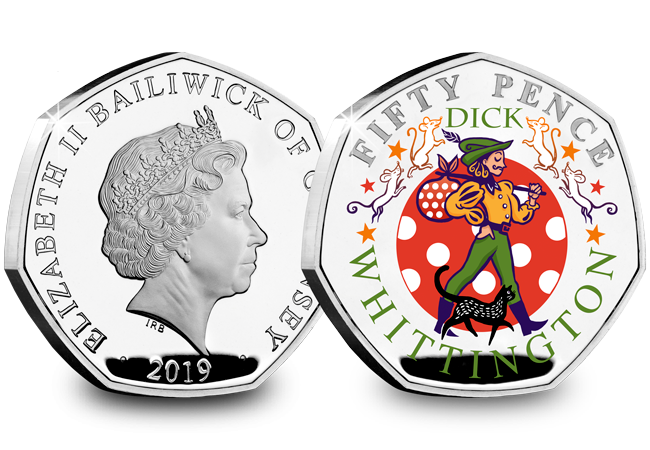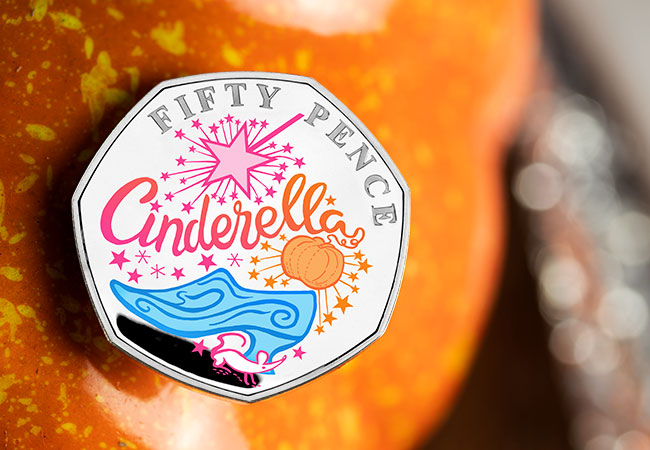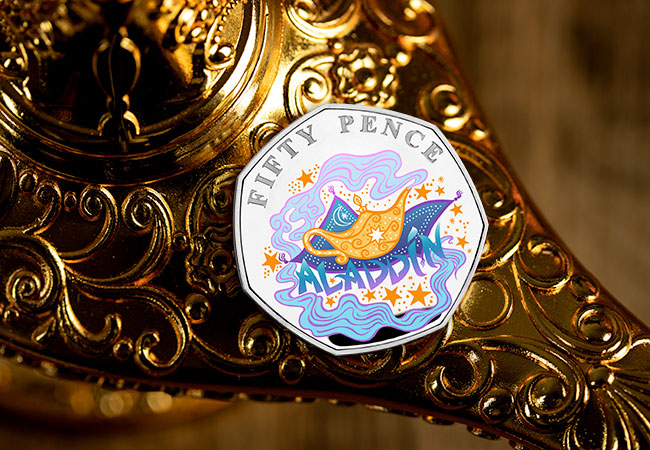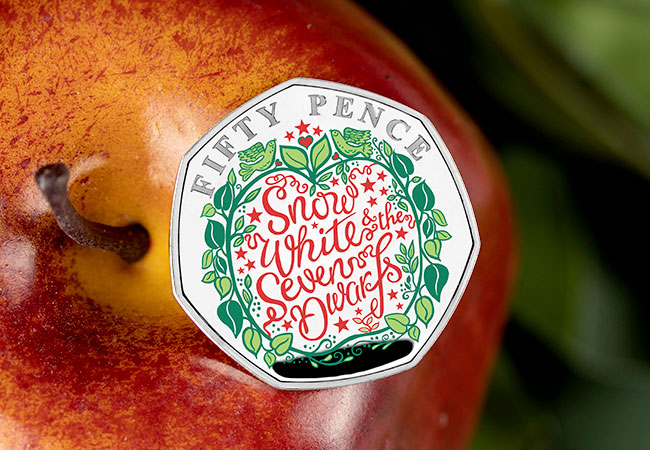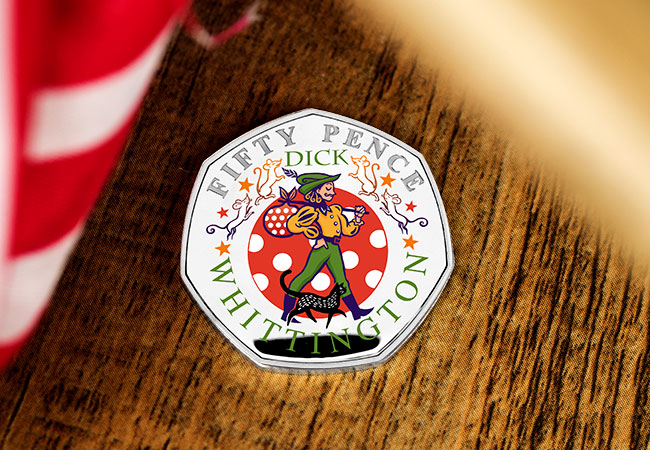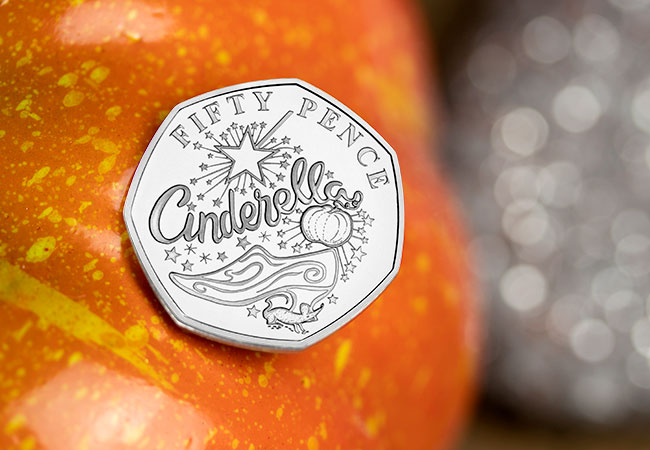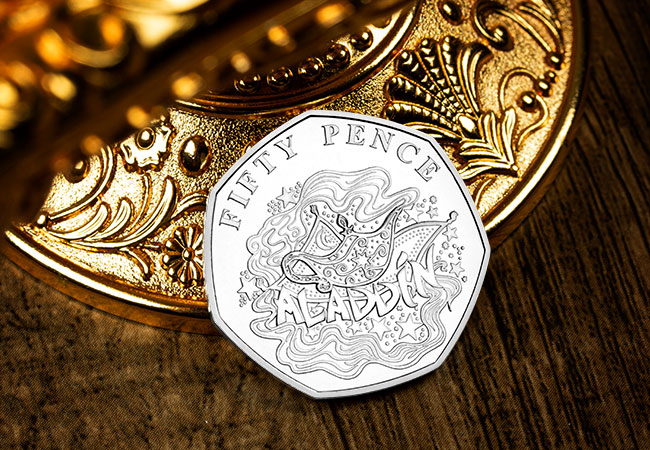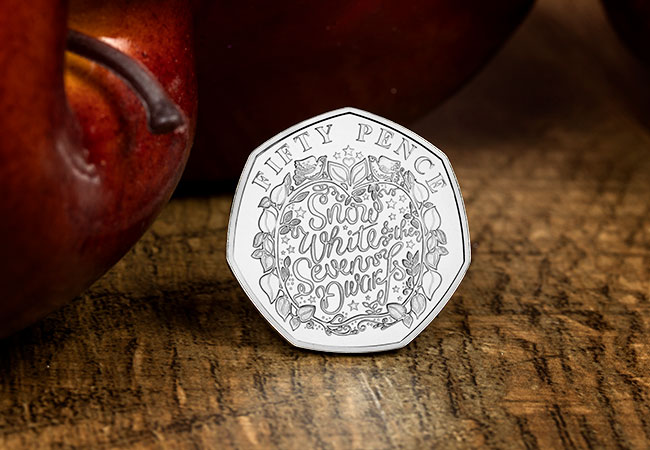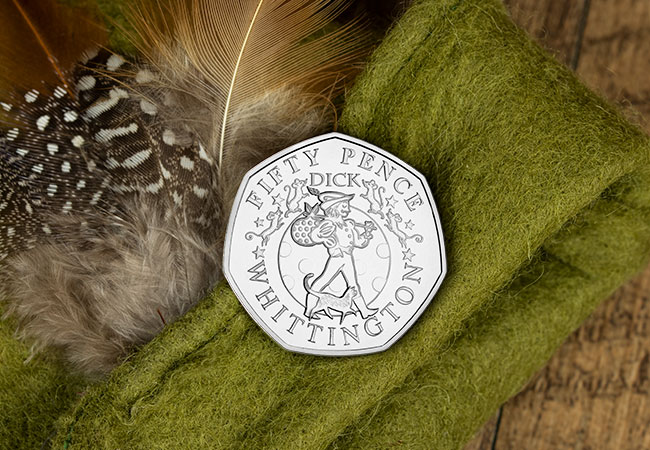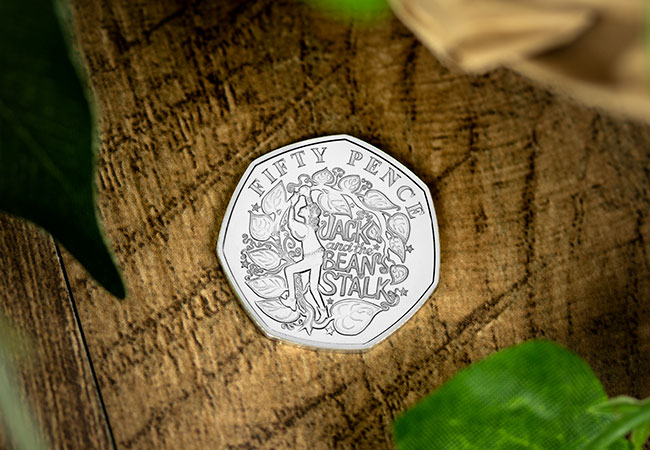Information
The fascinating history of the ‘Ten Bob’ banknote…
The 10 Shilling Note, or ‘ten bob’, was a goodly sum in the old days – in the 1960’s it could buy 6 pints of beer, 10 loaves of bread, or 17 pints of milk.
It’s hard to imagine its decimal equivalent, the 50p, buying so much these days!
This old banknote has a fascinating history, from being issued by the Government in a wartime emergency, changing colour to avoid forgery from the Nazis and eventually being replaced by the world’s most popular coin.
The Emergency Banknote
In August 1914, the British economy was in turmoil because of the instability brought on by the oncoming war on the continent. Bankers and politicians were desperately looking for ways to secure Britain’s finances and prevent the banks from collapsing.
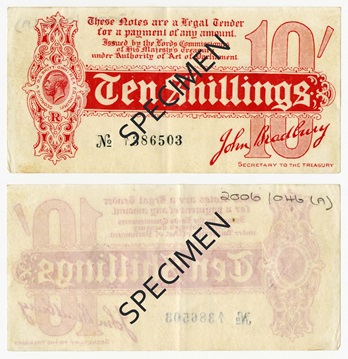
The Government decided that a large supply of banknotes had to be made available for the value of 10 shillings, making it easy for the public to make small transactions. However, The Bank of England was not able to prepare and print the required number of notes quickly enough, so the Government took the unprecedented step of deciding to issue the notes itself.
These banknotes became known as the Treasury banknotes and were unlike anything the British public had ever seen. Until this point the lowest denomination banknote was £5, and in those days this was such a large sum that many people would never have seen or used a banknote before.
That means that these Treasury notes now stand out as the first widely circulated banknotes in England.
The Wartime colour change
In 1928, the responsibility for printing Ten Shilling Notes was transferred to the Bank of England.
However, not long afterwards Britain once again found itself at war, and again found its currency under threat.
During World War II, Nazi Germany hatched a plan to undermine British currency. Through Operation Bernhard they believed that they had discovered a method to manufacture counterfeit ‘White Fivers’ and planned to distribute these in huge numbers to destabilise the British currency.
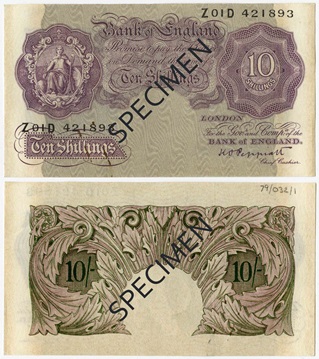
The Bank of England decided to take preventative action and, as a result, the 10 Shilling note was changed for duration of the war to a distinctive pink and blue in an attempt to prevent counterfeiting. It was also revolutionary in the progression of banknote technology by incorporating a metal security thread.
The Nazis could not compete with this high level anti-forgery technology and hence the British 10 Shilling Note stayed strong and supported the British wartime economy as it had done since its conception.
The 50p revolution
After undergoing a colour change during the Second World War, the ‘ten bob’ note reverted to the familiar red-brown until 1961, when a new design featuring a portrait of Queen Elizabeth II was introduced.
Despite a new design for the 10 Shilling Note featuring Sir Walter Raleigh on the reverse being approved in 1964, as part of the process of decimalisation it was dropped in favour of the new fifty pence coin introduced in 1969.
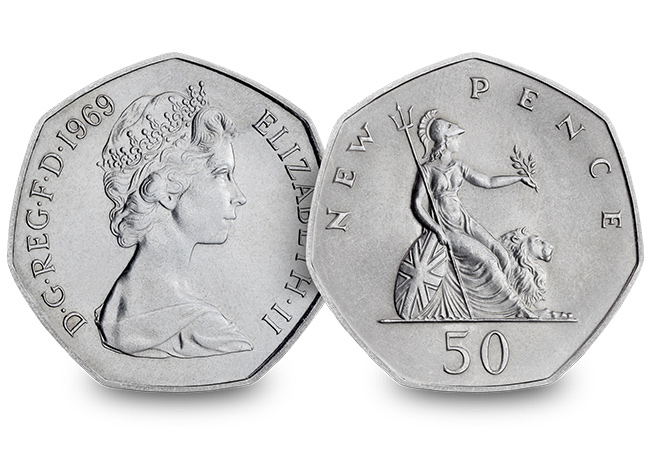
The principle reason for the change was to save the treasury money, the notes had an average lifetime of around five months, whereas a coin could last for fifty years. The 50p has since gone on to become the world’s most popular and collected coin, but nowadays few realise the fascinating history of its predecessor, the 10 Shilling Banknote!
If you’re interested…
It’s now been 50 years since the last 10 Shilling Banknote was issued – which is why you now have the chance to pay tribute to this famous old note with a LIMITED EDITION DateStamp™. But only a very limited number of 10 Shilling Notes will be released in this way, so you’ll need to be quick if you want to secure one for your collection! Click here to order one today >>
BREAKING NEWS: Brand new 50p be released on 31st October to mark Brexit
The Royal Proclamation confirming the new coin has been passed, and that means production can officially begin.
Plans to release special Brexit coins was first announced by former chancellor Philip Hammond in last year’s Budget. But this is the first confirmation from The Royal Mint that the coin is indeed going ahead.
I don’t know about you, but this coin story is one I’ve been watching for a while. And as such, I suspect it will be one of the most eagerly anticipated issues we’ve seen for a while!

Few details are known about the design of the coin, but we do know that it will feature the inscription: “Peace, prosperity and friendship with all nations”, as well as the historic date the UK is due to leave the EU – 31 October 2019.
A 50p coin was struck when the UK joined the European Economic Community in 1973 and when the UK held the presidency of the EU in 1998. So it only seems fitting one is released to also mark the UK’s departure from the EU. And by marking such a pivotal event in our history, this coin will surely be sought-after by collectors in years to come.
Whilst not many details have been released by The Royal Mint, there are rumours that up to 10 million coins will be struck and put into circulation, 3 million of which will be ready for 31st October – news that will surely delight collectors, who could be finding these coins in their change as early as Halloween.
We do not yet know whether special collector versions of this coin will be available. Though we have our fingers crossed that there will be!
If you want to be kept up to date with news of the Brexit coin as we approach 31st October, then register your interest below. We’ll then contact you as soon as we know more, and let you know how you can get your hands on one.
Curtains Up! FIVE Brand New Christmas Panto 50p Coins revealed…
The wait is finally over and it is with great excitement that we can reveal our brand new Christmas Pantomime 50p Coins with you all.
These amazing new 50p coins celebrate some of the most popular Christmas Pantomimes of all time, including: Cinderella, Snow White, Jack and the Beanstalk, Aladdin and Dick Whittington.
And what’s not to love! With Christmas just around the corner, young or old, is there anything more traditionally British than a family trip to the local panto?
Oh no there isn’t…
These are the first festive-themed coins to be authorised for release by the Guernsey Treasury and each has been fully approved by Her Majesty the Queen.
Whether you’re looking for the new centrepiece for your collection, you’re an avid 50p collector, a Panto fan, or looking for the perfect Christmas gift for a loved on – I’m certain you’ll love these as much as we do!
Get your sweets, take your seat, and let us tell you more about each of the specially commissioned designs featured on the WORLD’S FIRST Pantomime 50p coins. We hope you enjoy the show!
Bibbidi-bobbidi-boo… it’s Cinderella!
What could be more quintessentially Cinderella than a glass slipper? Encased in stars, this stunning design tells the story of how the Fairy God Mother makes Cinderella’s dreams come true – turning a pumpkin and mouse into grand stage coach and driver with a tap of her wand!
One of Aladdin’s 3 wishes should have been for this amazing new 50p!
This Aladdin 50p coin is guaranteed to transport you to a whole new world. And, if you rub the coin perhaps the Genie will appear out of the magic lamp that takes centre stage within the design. Featured on a floating magic carpet amongst the stars and Genie smoke, it captures the magic of Pantomime perfectly!
Fee fi fo fum… do I smell a Jack and the Beanstalk 50p coin?
This Jack and the Bean Stalk 50p takes coin designs to whole new heights! On here you can see Jack climbing up the giant beanstalk which sprouted after he managed to obtain magic beans from selling his beloved cow. Who knows what adventures greet him at the top…
Mirror, mirror on the wall is this Snow White & the Seven Dwarfs 50p the fairest of them all?
Mirror, mirror on the wall, which coin is the fairest of them all? I’d say this is a definite contender. The intricacies on this 50p are incredible, with the Snow White and the Seven Dwarfs text seamlessly intertwining into the vines that surround that ever so fateful apple. This is one that definitely has to be seen to be fully appreciated.
He’s behind you! It’s the Dick Whittington 50p coin…
Did you know that Dick Whittington has been a favourite subject of British pantomime since the pre-Victorian era? The coin depicts Dick Whittington as he begins his travels to London with his cat, Tommy Tittlemouse, in search of fame and fortune. This is guaranteed to be a hit with the more traditional Panto goers.
Importantly, these FIVE brand new 50p coins are only available to own as a complete set. None will be released individually. Interested? Well, you have two fantastic options…
First is as a complete set of Silver Proof 50p Coins, featuring the vibrant colour designs you’ve seen above. This set is strictly limited to just 2,019 and given the sell-out history of Silver 50p’s, they’re unlikely to be around for long. Find out more about these and secure yours today by clicking here >>
Then you also have the set available in superior Brilliant Uncirculated quality. The coins come presented in a full colour Presentation Pack, and would make the perfect Christmas gift for a loved one. Click here to find out more and order yours today for JUST £30.00 (+p&p) >>
Please note, demand for these brand new 50p collections has already been extremely high. Whether for yourself or as a Christmas gift for a loved one, if you’d like to secure one it is advised that you act quickly.

